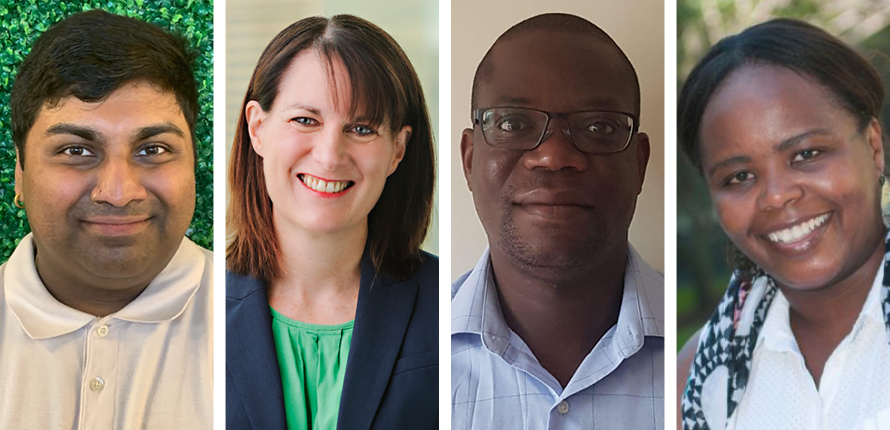We use cookies on this site to enhance your experience.
By selecting “Accept” and continuing to use this website, you consent to the use of cookies.
Search for academic programs, residence, tours and events and more.
Oct. 29, 2024
Print | PDFBy Oliver Masakure, associate professor, Business Technology Management
Stacey Wilson-Forsberg, associate professor, Human Rights and Human Diversity
with Rosemary Kimani-Dupuis and Suman Mondal
Waterloo, Windsor and Thunder Bay have become destination communities for a sizeable number of government-sponsored refugees. As part of a larger study exploring the postsecondary education transitions of African youth with refugee backgrounds, we spoke to young people from the Horn of Africa to learn about their high school experiences in these medium-sized Ontario cities.
Our research team interviewed 57 youth, aged 16 to 24, with refugee backgrounds from Eritrea, Ethiopia, Somalia, Sudan and South Sudan. We wanted to know about their education and career plans, the school-level barriers they encounter when preparing for postsecondary and the strategies they employ to attempt to overcome these barriers.
We found that although these young people aspire to pursue post-secondary education, of the 57 youth interviewed for this study, only 12 could describe the steps they are taking to enrol in college or university. The remaining participants were constrained by other factors.
For example, some of the youth who arrived as older adolescents were more likely to age out of their grades, which would potentially affect their school performance and plans for postsecondary. Some of the more recent arrivals in Thunder Bay were disengaged in school and barely understood how the Canadian education system works. Several of them were in English as an Additional Language classrooms and did not know what grade they were in.
We also found that young women are outperforming young men academically and are more able to articulate their postsecondary pathways. Yet, despite their use of cultural capital and school-level resources, these youth are still led to believe that they are not smart enough to attend college or university.

Research team (left to right): Suman Mondal, Stacey Wilson-Forsberg, Oliver Masakure, Rosemany Kimani-Dupuis
As of September 2022, students entering high school in Ontario are no longer placed in applied or academic courses. However, streaming still occurs in the senior grades. From the youths’ perspectives, this is problematic if they are not given the choice or their parents cannot have a say. At the administrative level, we found that guidance counsellors and teachers still conflate a lack of English fluency with a lack of capability. This is in part because school staff are not trained on how to tap into the linguistic capital of students from other cultures and, in our context, the Horn of Africa.
It is important to note that the young people who participated in our study are not passive bystanders in school. Whether consciously or unconsciously, effectively or not, they are continuously pushing back on the common narrative that African refugees are needy and lack skills. They have adopted the counternarrative of capability, agency and resistance.
These young people are not engaging in overt strategies such as student walkouts and protests. Instead, they are involved in more subtle or silent acts of internal resistance. Their behaviour appears to conform to cultural norms and expectations, but they are engaged in an act of resistance. For example, the youth reported that they are not following academic and career advice that they perceive as unhelpful to their career goals. Furthermore, many of the young women and some of the young men reported that they want to give back to their families and communities by becoming lawyers, doctors, nurses and social workers. On the surface, it looks like they are merely conforming to parental expectations, but in fact they have a social justice agenda to fill a void in their communities in Canada and their countries of origin.
Our research contributes to the scant literature on African refugees in Canada by providing a deeper understanding of the realities of hardship experienced by young people from the Horn of Africa, while highlighting their agency and capacity to accomplish educational goals.